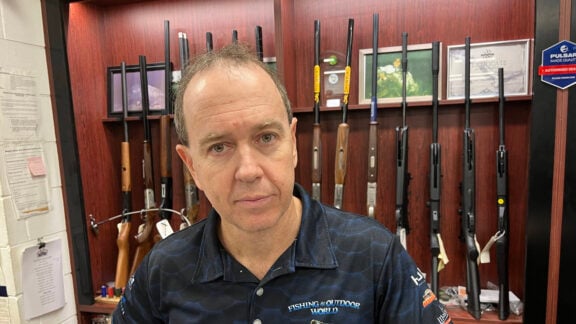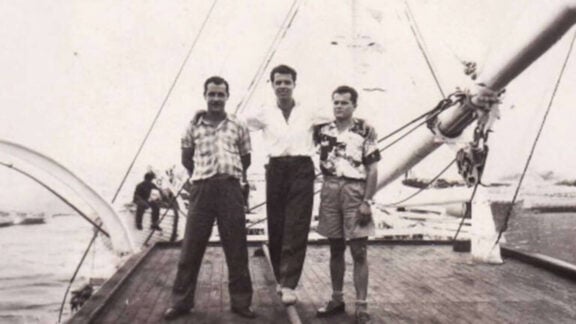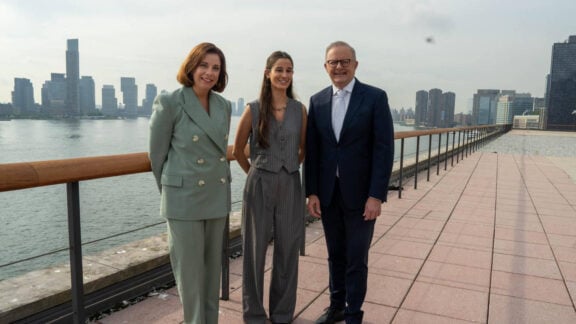For most Greek Australians Christmas will be marked by family and friends coming together, however according to Yannis Pilalidis from the Archdiocese’s Welfare Centre some will be suffer from a combination of “alcoholism, gambling, substance abuse and loneliness.”
“The Welfare Centre is trying to help but mostly we try to help the parents, partners or other relatives of those suffering from gambling addiction, substance abuse and alcoholism.”
There are many cases where those that suffer alcoholism, gambling and/or substance abusem “use violence towards their parents to extract a little cash from them for gnawing addictions,” Pilalidis said.
Eleni Andrianakis a psychiatric nurse working in Melbourne’s prison system for the Department of Justice, has dealt with Greek Australian mothers who are addicts and their addicted newborns.
“Daily we experience the ordeal of babies born addicts with deprivation syndrome due to the mother’s addictions.”
“In the womb, these children become addicted to heroin and methadone, and as a result are born with deprivation syndrome,” said Andrianakis .
“We’ve had young children of Greek origin, who were delivered to our department.”
Only a week ago, 12 young Greek Australians suffering substance abuse were rough sleeping at the base of an inner-city housing commission apartment complex the psychiatric nurse said.
The narrative of Greek migrant success often forces vulnerable people to the margins of the Greek community. The focus on aspiration and success deems those who suffer poverty due to substance abuse, alcoholism and gambling, as a failures who bring shame onto their families and the Greek community.
Christmas and New Year are for most people marked by gatherings with loved ones, the same is not true for others, especially the elderly who live alone or have been forgotten in a nursing home, said Pilalidis,
“There are elderly parents totally alone in nursing homes, totally forgotten, not even their children visit them on these holidays,” he told Neos Kosmos.
“Especially those retired and no longer active professionally and socially, those who have lost their partner, and their children are adults and living far away, feel the loneliness deeply and need meaningful contact during these festive days of love.”
“Christmas becomes a trigger for depression for many of them and the holidays are a foreign land. They are cloaked in sadness not a festive mood. They feel abandoned, and no one will notice their absence,” Pilalidis said.
Christmas depression arises as memories related to their children are activated, and they feel lonely, because they have lost them, or because they do not want to become a burden on them.
Many of them face mobility or other problems and will not be able to go out of their house or the hostel where they are staying. Pilalidis said that the Archdiocese has organised fundraising events for over 25 years aimed at providing material support to those suffering loneliness.
Mary Sophou the manager of family and community services at Pronia (formerly the Australian Greek Welfare Society) talked to Neos Kosmos and said, “This year we have become increasingly aware that loneliness is a key issue of concern in our community. Our counselling program has seen an increase of people of describe themselves as lonely.”
“Our case work service has received requests for assistance from people who tell us they have no or limited supports. Research studies note that feelings of prolonged loneliness can have a negative impact on a person’s health and wellbeing ,which may include a decline in physical health as well as increased risk of mental health conditions such as depression, anxiety, low self-esteem, stress and change in sleep patterns.”
Pronia held public excursions for all the community to try and ameliorate loneliness and isolation.
“One of the ladies, a widow, was crying because she has lost her daughter to cancer and has not been out of the house for three years.”
“Another lady had problems with her son because he is bipolar, and she cannot deal with an adult son who is bipolar, while some do not have children.”
“The excursions are Greek-speaking, and we provide a safe environment for all those who come,” said the social worker to Neos Kosmos.
Studies have found that older people who experience extreme loneliness are up to 26 per cent more likely to die prematurely. According to the Australian Bureau of Statistics, Australians over 65 are increasingly likely to live alone, and living alone is a common cause of social isolation. Studies also suggest that loneliness has increased due to the Covid-19 pandemic and lockdowns in 2020 and 2021 and both older people and young people are expressing loneliness and isolation.








